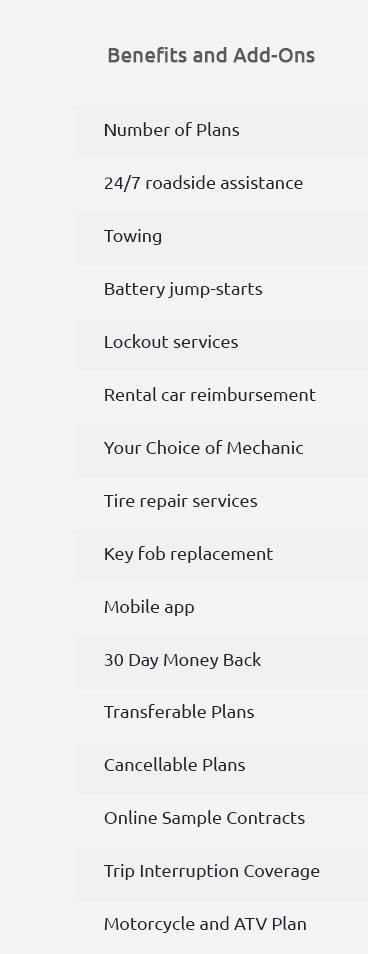 |
 |
 |
 |
 |
|||
 |
|||
 |
 |
 |
|
 |
|||
 |
|
 |
|
 |
|
 |
|
 |
|
 |
|
 |
|
 |
|

Car Coverage Types: A Comprehensive Coverage GuideUnderstanding the different car coverage types is essential for U.S. consumers who want to protect their vehicles and manage repair costs efficiently. In this guide, we'll explore various auto warranties and insurance options, highlighting the benefits of each, from peace of mind to cost savings. Basic Coverage TypesWhen it comes to car coverage, there are several basic types that every vehicle owner should consider:
Extended Auto WarrantiesExtended warranties offer additional protection beyond the manufacturer's warranty, covering repair costs for specific vehicle components. Powertrain WarrantiesThe century limited powertrain warranty is an excellent example of this coverage, focusing on essential parts like the engine and transmission. Bumper-to-Bumper WarrantiesThis type of warranty provides comprehensive coverage, similar to the original manufacturer's warranty, covering most vehicle components, excluding regular wear-and-tear items. Peace of Mind and Cost SavingsInvesting in the right coverage can lead to significant peace of mind and cost savings. Consider the toyota extended service warranty for additional protection tailored to your vehicle's needs. FAQsWhat is the most common type of car insurance required in the U.S.?Liability insurance is the most common type required by law in most U.S. states. It covers damages you cause to others. How does an extended warranty benefit me?An extended warranty provides additional coverage after the original warranty expires, helping to cover unexpected repair costs and offering peace of mind. What does a powertrain warranty typically cover?It usually covers the engine, transmission, and other key components that make your car move. This warranty is essential for protecting against major mechanical failures. https://www.nerdwallet.com/article/insurance/types-of-car-insurance
The 8 Key Types of Car Insurance - Liability insurance. - Collision insurance. - Comprehensive insurance. - Personal injury protection. https://www.nationwide.com/lc/resources/auto-insurance/articles/types-of-car-insurance
Here are a few of the basic car insurance types, how they work and what they cover. Liability coverage Liability coverage is required in most US states as a ... https://www.countryfinancial.com/en/planning/common-topics/insurance-coverage/6-types-of-auto-coverage-explained.html
6 Types of Car Insurance Coverage Explained - Liability Coverage protects you if you cause damage to others, including both personal injury and ...
|